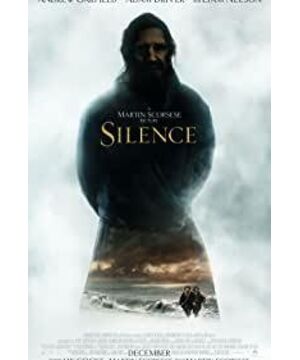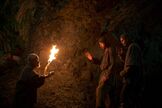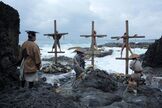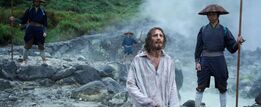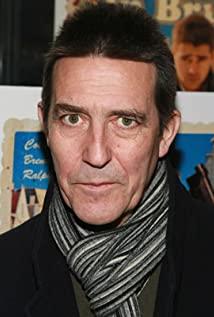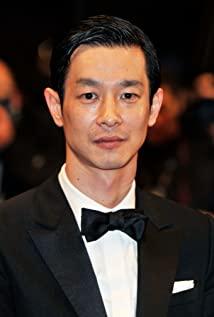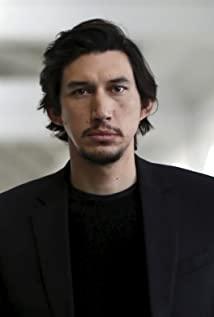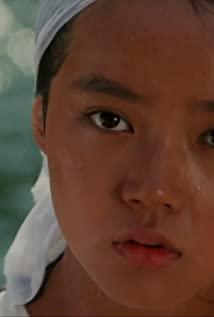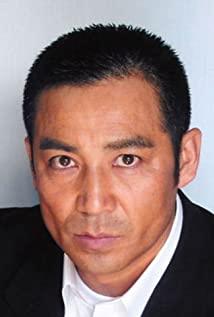Martin Scorsese directed "Silence" (2016), the subject matter is unfortunate, not many people are optimistic, it is somewhat adventurous, but the history of light and shadow for more than 100 years, destined that some directors care more about their inner orphan creation. Just like his previous "The Last Temptation of Christ", he has a profound discussion on religious issues.
Religion is a part of human civilization. Human beings are derived from many religions into three major religions. They have experienced many evolutions, struggles, running-in and stereotypes. "Silence" discusses the initial spread of Christianity in Japan, whether it is from historical data excavation or reproduction at that time. It is extremely rare in the context of communication.
The film doesn't seem to be entangled in a grand narrative, but in the context of the story, it just strips away the cocoon and elucidates the restraint and unbearableness in a special historical situation in the comparison between human nature and religion. Although the film is adapted from the novel of the same name by the Japanese writer Endo Shusaku, the first four chapters of the original novel are Rodriguez's letters, and after the fifth chapter, it cuts into a generalized narrative.
The film is not entangled in it, but turbulent and clear, focusing on the two young priests Rodriguez and Gape, who came to Japan with a mission from Portugal to find Father Ferrera, and what they saw and heard from their eyes. Bit by bit. The spread of Catholicism, in the eyes of the communicator, is a firm belief and a gospel that benefits the world.
However, in the eyes of those in power in Japan at the time, it was bound to deceive the people with demons and demons, which would have an inevitable impact on Buddhism. The problem is that in the process of evangelism, the local believers' understanding of the doctrine will also be out of shape due to the different levels of ignorance and acceptance. The popular fanaticism of religion will make those in power deeply fear and wary, threatening to endanger their monolithic shogunate rule.
Kazunari Ogata's confrontation with Rodriguez at the so-called "tea party", played by the Japanese shogunate judge, is rewarding. The judge said how to choose if there were four wives. Luo said that only a good wife could be chosen. For Japan, no choice is the biggest choice. Because Japan cannot give up 3 million Buddhists to become 300,000 Christians.
This was the reality in the decades after 1633. Japan, a secluded and savage country, is bound by its narrow vision and political system, not to mention the persecution of missionaries from the West. Under various tortures, Christians with firm beliefs can be saved from death and released on the spot by stepping on the statue of Christ. The positive and negative aspects of all living beings of Japanese actors are vivid and exquisite, which is really remarkable.
The translation played by Tadanobu Asano is vivid, and his flattery and persuasion are just right, making people laugh. Yoshijiro, played by Kubozuka Yosuke, is a key figure. As a persecuted Christian, he brought them to Japan from Macau. After that, he guided them, betrayed them, repented, and finally was forgiven and understood by Rodriguez. Because even Rodriguez was questioned by the Japanese shogunate about the local believers dying for the glory of their faith.
If it is said that he can still firmly believe in the courtship and persuasion of judges and translators, but when Father Ferrera appeared in front of him as an "envoy", after difficult persuasion, Luo's heart loosened, especially when he saw When the believers who were put into the "pig cage" were thrown into the sea, and Father Gape threw himself into the sea to save his life, this deeply shocked his heart. This triggered his ultimate thinking about life. Is it the ultimate expression of the will of faith to take the life of a believer with a single slash?
And my Lord said that I would rather I suffer for you, and I would rather you trample on my idol than see you suffer. Ferrera's gorgeous turn seemed to betray the teachings and beliefs, but what he did was not the compassion for life clarified by the teachings, and he could still serve the local people.
In this way, in 1641, Father Rodriguez turned into a commoner Okada, who could marry a wife and have children. Like Father Ferrera, he gave up all forms of belief in Christianity, and the judges regularly checked its authenticity and let the He kept stepping over the statue of Christ.
Okada, who has returned to an ordinary person, seems to be light, but questions will accompany him throughout his life: "I am waiting for the Lord's answer, but there is only silence... I pray, but I can't get an answer... What am I praying for? ? Nothingness?"
These three seemingly contradictory interrogations show the sincere appeal of a Son of Man for his faith. This is what ordinary people often say, when we are suffering, God, where are you? Could it be that we believe in You, that is why we come to the world to suffer? Can't you save us from fire and water? As long as there is faith, so long will this petition last.
As Byron once said, "Although the long volume of history is voluminous, it is actually only one page of content." If it wasn't for the release of "Silence", who would have discussed this topic that has been annihilated in the pile of historical papers for a long time.
China and Japan are separated by a strip of water, not to mention the same language and ancestry, at least there are many similarities. The real introduction of Christianity into China was the Ming Dynasty, but the way of treating Christianity was different. Although the imperial court also opposed the spread of Catholicism, it did not form a large-scale bloody purge like Japan at that time. The "Boxer" massacre in the late Qing Dynasty Acts of clergy, etc., are just a special exception available for Empress Dowager. China's vastness, and Japan's narrowness, have formed a very different point in the same closed situation.
The value of the film also lies in the questioning of religious beliefs: is silence necessary, or a delay, or forever. There cannot be a single answer to this, because every country and place have different attitudes towards religion, not to mention that the number of believers of the three major religions in every country is also different.
As far as the reality is concerned, this film is dealing with the many thoughts that religion brings to human beings today: whether religion brings human progress or regression, whether it is the bondage of human nature or purifying human soul, and whether it brings human development. There is no agreement whether to be confused or to bring lasting light to mankind. This is doomed to continue unsolved problems and predicaments.
It may be a bit too much to say that this is a masterpiece, but for me, it is indeed a rare masterpiece, which can be said to surpass all his films in the past ten years ("The Departed", "Hugo", "Wolf of Wall Street" ").
"Who's Knocking on My Door", "Mean Streets", "Taxi Driver" and "Raging Bull" are his masterpieces, especially "Taxi Driver" can be said to never tire of reading, as if Robert De Niro was born for From "Taxi Driver", the wonderful temperament and flavor permeated by the film can never be replicated, and it is also one of my favorite films.
2017, 2, 17
View more about Silence reviews


